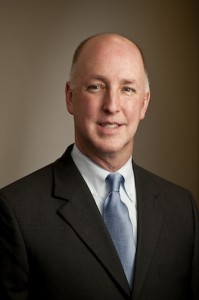June 24, 2013- Editorial in the Ft. Wayne News-Sentinel
Both the public and officials should know someone is watching.
Mark Lubbers and Mark Massa have been friends a long time. Now, Lubbers represents the developers of the proposed $2.8 billion coal-gasification plant in Rockport. And Massa is a sitting justice of the Indiana Supreme court, which is scheduled to hear a dispute over the case raised by opponents who say the plant will cost utility customers as much as $1.1 billion in higher rates.
The need for Massa to recuse himself from the case is obvious – the potential conflict of interest here is not subtle. But the fact is that Massa so far has not recused himself. In fact he hasn’t even said whether he’s considering the possibility.
The case illustrates a limitation of ethics policies and guidelines that we don’t often think about. No matter how strong the ethics infrastructure is – no matter how many panels we appoint, no matter how many rules we write – voters and taxpayers in the end have to trust the judgment of the people elected and appointed to office. There is no way to look into someone’s mind to discover if “Yes, I can still be objective” is a true statement or merely wishful thinking.
That doesn’t mean the infrastructure isn’t important. If nothing else, all the panels and the rules serve to keep ethics in the public mind, to let us know that someone in government is at least thinking about doing things fairly and justly and without hidden agendas. That knowledge is what helps us have faith in our government instead of viewing it as an evil outside force.
They keep ethics in the minds of public officials, too, letting them know someone is watching. As much as they might like to, they can’t operate on their own set of rules without being held accountable.
That’s an important consideration in a state like Indiana that still has a part-time legislature. Most of our lawmakers earn their livelihoods at something other than their role as legislators, so every time the General Assembly convenes, it is rife with conflicts of interest and potential conflicts.
The gasification case is set for arguments in the court in September, so Massa has some time to make up his mind. Lubbers says Massa will recuse himself if there is a reason to, because “his ethical standards are above reproach.” But University of Louisville law professor Les Abramson, who has written about judicial disqualification, says if a judge doesn’t get off a case as soon as he or she is made aware of a disqualification issue, “that throws into question any ruling the judge participates in.” So perhaps September isn’t that far away after all.

